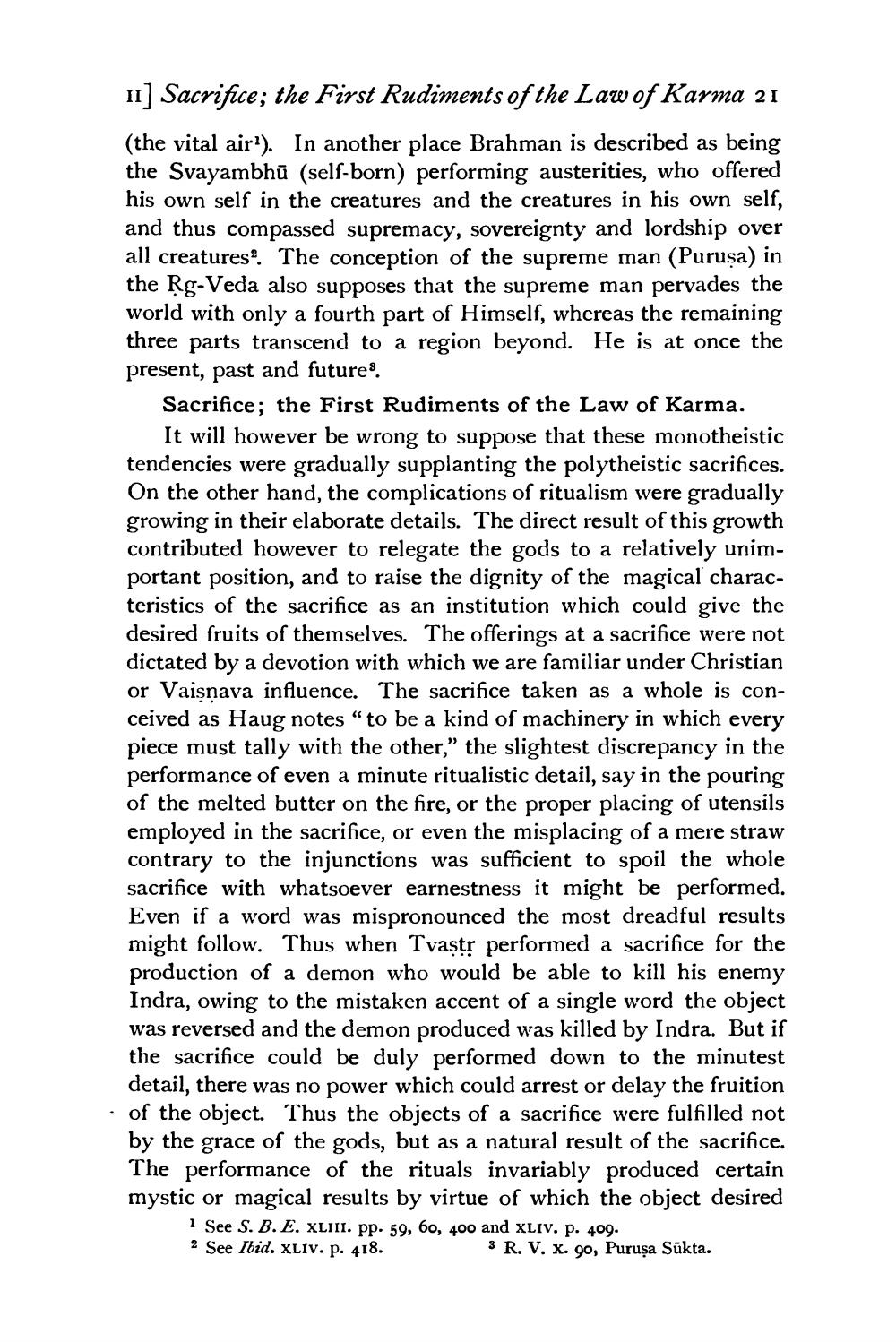________________
II] Sacrifice; the First Rudiments of the Law of Karma 21 (the vital air?). In another place Brahman is described as being the Svayambhū (self-born) performing austerities, who offered his own self in the creatures and the creatures in his own self, and thus compassed supremacy, sovereignty and lordship over all creatures? The conception of the supreme man (Puruşa) in the Rg-Veda also supposes that the supreme man pervades the world with only a fourth part of Himself, whereas the remaining three parts transcend to a region beyond. He is at once the present, past and future
Sacrifice; the First Rudiments of the Law of Karma.
It will however be wrong to suppose that these monotheistic tendencies were gradually supplanting the polytheistic sacrifices. On the other hand, the complications of ritualism were gradual growing in their elaborate details. The direct result of this growth contributed however to relegate the gods to a relatively unimportant position, and to raise the dignity of the magical characteristics of the sacrifice as an institution which could give the desired fruits of themselves. The offerings at a sacrifice were not dictated by a devotion with which we are familiar under Christian or Vaisnava influence. The sacrifice taken as a whole is conceived as Haug notes "to be a kind of machinery in which every piece must tally with the other," the slightest discrepancy in the performance of even a minute ritualistic detail, say in the pouring of the melted butter on the fire, or the proper placing of utensils employed in the sacrifice, or even the misplacing of a mere straw contrary to the injunctions was sufficient to spoil the whole sacrifice with whatsoever earnestness it might be performed. Even if a word was mispronounced the most dreadful results might follow. Thus when Tvastr performed a sacrifice for the production of a demon who would be able to kill his enemy Indra, owing to the mistaken accent of a single word the object was reversed and the demon produced was killed by Indra. But if the sacrifice could be duly performed down to the minutest detail, there was no power which could arrest or delay the fruition of the object. Thus the objects of a sacrifice were fulfilled not by the grace of the gods, but as a natural result of the sacrifice. The performance of the rituals invariably produced certain mystic or magical results by virtue of which the object desired
? See S. B. E. XLIII. pp. 59, 60, 400 and xliv. p. 409. 2 See Ibid. xliv. p. 418.
3 R. V. X. 90, Puruşa Sūkta.




